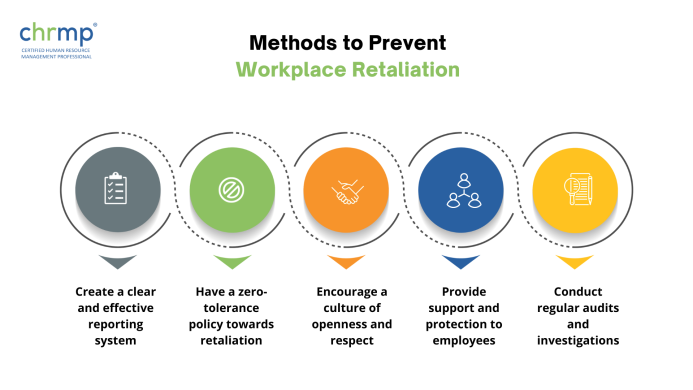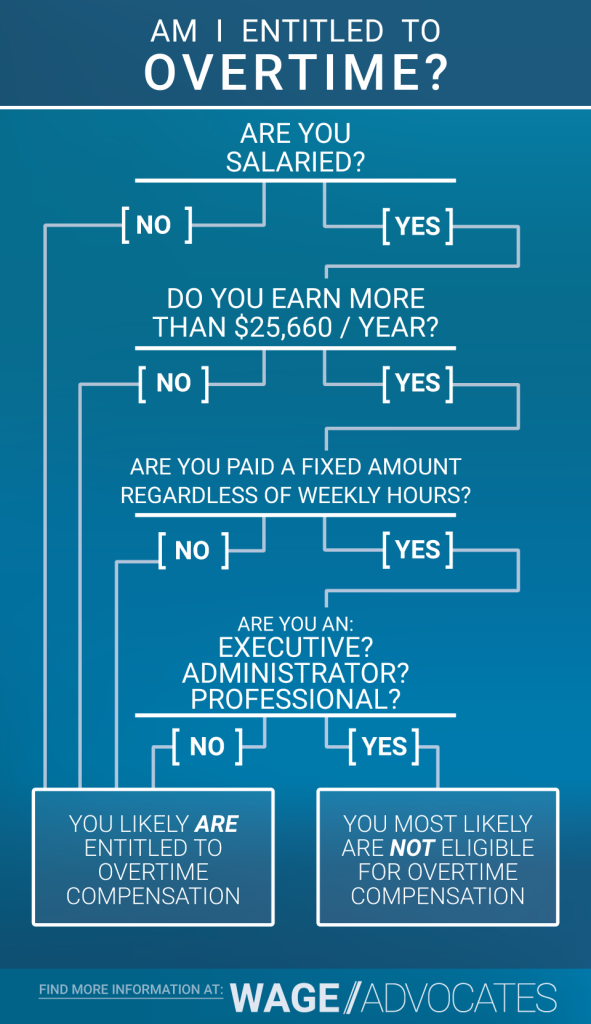
Your Essential Guide to Employee Rights & Protections: Know Your Workplace Power
Navigating the world of work can feel complex, especially when it comes to understanding your rights. But here’s a secret: you have fundamental protections designed to ensure fair treatment, safety, and respect in the workplace. Knowing these rights isn’t just about avoiding problems; it’s about empowering yourself to thrive professionally and ensuring a positive work environment for everyone.
This comprehensive guide, specifically designed for beginners, will break down the core aspects of employee rights and protections. We’ll explore various laws and principles that safeguard your interests, making it easier for you to understand what you’re entitled to and what steps to take if your rights are ever violated.
Let’s dive in!
Understanding the Foundation: What Are Employee Rights?
At its heart, employee rights refer to the legal and ethical entitlements that workers have in relation to their employers. These rights are established by a combination of federal, state, and local laws, as well as common law principles (decisions made by courts over time). They act as a framework to prevent exploitation, promote fairness, and ensure a healthy and productive working relationship.
Think of them as the rules of the game for the employer-employee relationship, designed to create a level playing field.
I. Fair Compensation & Wages: Getting What You’ve Earned
One of the most fundamental rights you have as an employee revolves around how and what you are paid. The Fair Labor Standards Act (FLSA) is the primary federal law governing this area, though many states have their own, often stricter, laws.
A. Minimum Wage
- What it means: There’s a legally mandated lowest hourly rate an employer can pay you. This "minimum wage" can vary significantly.
- Federal vs. State/Local: The federal minimum wage is a baseline. However, many states and even specific cities have set their minimum wages higher. If both federal and state laws apply, you are entitled to the higher of the two.
- Tipped Employees: Special rules apply to employees who earn tips. Employers can pay a lower direct wage, but your combined direct wage and tips must still meet the full minimum wage requirement.
B. Overtime Pay
- What it means: If you are a non-exempt employee (meaning you are covered by overtime laws) and you work more than 40 hours in a single workweek, your employer generally must pay you at least one and a half times (1.5x) your regular rate of pay for those extra hours.
- Exempt vs. Non-Exempt: Not all employees are eligible for overtime. Certain professional, administrative, executive, and outside sales employees, among others, may be "exempt" from overtime pay if they meet specific salary and duty tests. Understanding your classification is crucial.
C. Pay Transparency
- A Growing Trend: While not a universal federal law, many states and cities are enacting "pay transparency" laws. These laws might require employers to disclose salary ranges in job postings or to provide information about pay scales upon request.
- Why it matters: Pay transparency aims to reduce pay gaps and ensure that employees are compensated fairly, regardless of their background.
D. Permissible Deductions
- Limits on Deductions: Employers generally cannot make deductions from your paycheck that bring your pay below the minimum wage, or that reduce your overtime pay.
- Common Allowable Deductions: These typically include taxes (federal, state, local), Social Security, Medicare, and voluntary deductions like health insurance premiums, retirement contributions, or union dues (if authorized by you).
- Illegal Deductions: Deductions for things like cash register shortages, damaged property (unless due to willful misconduct), or uniform costs (if it reduces pay below minimum wage) are often illegal.
II. Safe & Healthy Workplace Environment: Your Right to Safety
You have an absolute right to work in an environment that is safe and free from recognized hazards. The Occupational Safety and Health Act (OSHA) is the primary federal law that ensures this.
A. Employer’s Responsibilities
- Provide a Safe Workplace: Employers must provide a workplace free from serious recognized hazards and comply with OSHA standards. This is known as the "General Duty Clause."
- Training & Information: Employers must provide safety training in a language and vocabulary workers can understand, and inform them about potential hazards.
- Protective Equipment: Employers must provide and pay for most personal protective equipment (PPE), such as hard hats, safety glasses, and gloves.
- Hazard Communication: You have a right to know about hazardous chemicals in your workplace. Employers must provide Safety Data Sheets (SDS) and proper labeling.
- Recordkeeping: Employers are required to keep records of work-related injuries and illnesses.
B. Your Rights Under OSHA
- Right to Know: You have the right to know about hazards in your workplace and how to protect yourself.
- Right to Training: You have the right to receive training on how to safely do your job.
- Right to Information: You can request information from your employer about hazards, safety procedures, and work-related injuries.
- Right to File a Complaint: You can file a confidential complaint with OSHA if you believe there are serious hazards or if your employer isn’t following OSHA standards.
- Right to Refuse Unsafe Work: In very specific, limited circumstances, you may have the right to refuse to perform a task if you believe it poses an immediate danger of death or serious injury, and your employer won’t address it. This is a complex right and should be exercised with caution.
III. Non-Discrimination & Equal Opportunity: Fair Treatment for All
Discrimination in the workplace is illegal and undermines the principle of equal opportunity. Various federal laws prohibit discrimination based on specific characteristics, overseen primarily by the Equal Employment Opportunity Commission (EEOC).
A. Protected Characteristics
It is illegal for an employer to discriminate against you in any aspect of employment (hiring, firing, promotions, pay, assignments, benefits, etc.) based on:
- Race, Color, National Origin: Title VII of the Civil Rights Act of 1964.
- Religion: Title VII also protects individuals from religious discrimination and requires employers to reasonably accommodate religious practices.
- Sex (including pregnancy, sexual orientation, and gender identity): Title VII. This includes issues like sexual harassment and unequal pay for equal work.
- Age: The Age Discrimination in Employment Act (ADEA) protects individuals who are 40 years of age or older.
- Disability: The Americans with Disabilities Act (ADA) prohibits discrimination against qualified individuals with disabilities.
- Genetic Information: The Genetic Information Nondiscrimination Act (GINA) prohibits discrimination based on genetic information.
- Military Status: The Uniformed Services Employment and Reemployment Rights Act (USERRA) protects service members’ reemployment rights.
B. What is Discrimination?
Discrimination can take many forms:
- Direct Discrimination: An explicit act based on a protected characteristic (e.g., "We don’t hire women for this role.").
- Indirect (Disparate Impact) Discrimination: A seemingly neutral policy or practice that disproportionately affects a protected group (e.g., a height requirement that excludes most women).
- Harassment: Unwelcome conduct based on a protected characteristic that becomes a condition of employment or creates a hostile, intimidating, or offensive work environment. This includes:
- Quid Pro Quo Harassment: When job benefits are made contingent on submitting to unwelcome sexual advances.
- Hostile Work Environment: When unwelcome conduct is severe or pervasive enough to alter the terms or conditions of employment.
C. Reasonable Accommodation
- Religion: Employers must reasonably accommodate an employee’s religious beliefs or practices, unless doing so would cause an "undue hardship" on the employer’s business.
- Disability: Under the ADA, employers must provide "reasonable accommodations" to qualified individuals with disabilities, unless doing so would cause "undue hardship." This could include modifications to the job, work environment, or the way things are done.
- Pregnancy: The Pregnancy Discrimination Act (PDA) requires employers to treat pregnant employees the same as other employees with similar abilities or inabilities. This may include providing reasonable accommodations.
IV. Leave & Time Off: Balancing Work and Life
While many types of leave are at the discretion of the employer, certain federal and state laws guarantee the right to take time off for specific reasons without fear of losing your job.
A. Family and Medical Leave Act (FMLA)
- Purpose: FMLA allows eligible employees to take up to 12 weeks of unpaid, job-protected leave per year for specific family and medical reasons.
- Eligibility: Generally, you must have worked for your employer for at least 12 months, accumulated 1,250 hours of service during the previous 12 months, and work at a location where the employer has 50 or more employees within 75 miles.
- Qualifying Reasons:
- Birth of a child and to care for the newborn child.
- Placement with the employee of a child for adoption or foster care.
- To care for an immediate family member (spouse, child, or parent) with a serious health condition.
- For the employee’s own serious health condition that makes them unable to perform their job.
- For qualifying exigencies arising out of a family member’s military deployment.
- To care for a service member with a serious injury or illness (up to 26 weeks).
- Job Protection: When you return from FMLA leave, you generally have the right to be restored to your original job or an equivalent job with equivalent pay, benefits, and other terms of employment.
B. State and Local Leave Laws
- Paid Sick Leave: Many states and cities have enacted laws requiring employers to provide paid sick leave, which can be used for your own illness, caring for a family member, or sometimes for reasons related to domestic violence.
- Family Leave: Some states offer broader paid family leave programs beyond FMLA, allowing for paid time off for bonding with a new child or caring for ill family members.
- Voting Leave: Many states require employers to provide employees with time off to vote.
- Jury Duty Leave: Employers generally cannot fire or punish you for serving on a jury.
V. Workplace Privacy: A Limited Expectation
While you have some privacy rights, it’s important to understand that your expectation of privacy in the workplace is generally limited, especially when using company resources.
A. Monitoring
- Company Property: Employers generally have the right to monitor your use of company property, including computers, email, internet usage, and phones.
- Surveillance: Employers can often use video surveillance in common areas, but typically not in private areas like restrooms or changing rooms.
- Consent: Some states require employers to inform employees about monitoring activities.
B. Personal Information
- Medical Information: Your medical information is protected by the Health Insurance Portability and Accountability Act (HIPAA) and the ADA, limiting what your employer can ask for and how they can use it.
- Background Checks: Employers must follow specific rules under the Fair Credit Reporting Act (FCRA) when conducting background checks, including obtaining your consent.
- Drug Testing: Rules for drug testing vary by state and industry. Generally, tests must be conducted fairly and consistently.
VI. Whistleblower Protection: Speaking Up Without Fear
Whistleblower protection laws are designed to shield employees from retaliation if they report illegal, unethical, or dangerous activities within their organization.
A. What is Whistleblowing?
It involves reporting wrongdoing to internal authorities (like HR or management) or external agencies (like government regulators or law enforcement). This could include:
- Fraud
- Violation of environmental laws
- Safety violations
- Discrimination
- Financial misconduct
B. Protection Against Retaliation
- No Adverse Action: Employers are generally prohibited from firing, demoting, harassing, or otherwise discriminating against an employee for lawfully reporting a violation.
- Various Laws: Many federal laws (e.g., OSHA, Sarbanes-Oxley Act, False Claims Act) and state laws include specific whistleblower protections relevant to their areas.
VII. Right to Organize & Collective Bargaining: A Collective Voice
The National Labor Relations Act (NLRA) guarantees employees the right to organize, form, join, or assist a labor organization (union) for collective bargaining purposes.
A. Your Rights Under the NLRA
- Form, Join, or Assist a Union: You have the right to discuss unionization with coworkers, sign union cards, and participate in union activities.
- Collective Bargaining: Through a union, employees can negotiate with their employer over wages, hours, and other terms and conditions of employment.
- Engage in "Concerted Activities": You have the right to act together with other employees for your mutual aid or protection, even if you are not in a union (e.g., discussing wages, working conditions, or safety concerns).
- Protection from Employer Interference: Employers cannot interfere with, restrain, or coerce employees in the exercise of these rights. This includes prohibitions against threatening, bribing, or spying on employees related to union activities.
VIII. Protection Against Wrongful Termination: When You Can’t Just Be Fired
While most employment in the U.S. is "at-will" (meaning an employer can fire you for any reason, or no reason, as long as it’s not an illegal one), there are important exceptions.
A. At-Will Employment Explained
- The General Rule: In most states, employers can terminate an employee at any time, for any reason (or no reason), as long as it’s not an illegal reason. Similarly, an employee can leave a job at any time for any reason.
B. Exceptions to At-Will Employment
- Discrimination: You cannot be fired because of your race, gender, age, disability, religion, national origin, or other protected characteristics.
- Retaliation: You cannot be fired for exercising a protected legal right (e.g., filing an OSHA complaint, reporting discrimination, taking FMLA leave, whistleblowing).
- Breach of Contract: If you have an employment contract (written or implied) that specifies reasons for termination or a notice period, you cannot be fired in violation of that contract.
- Public Policy: You cannot be fired for refusing to commit an illegal act, performing a public duty (like jury duty), or reporting illegal activities.
- Union Activities: You cannot be fired for engaging in union organizing or other protected concerted activities.
IX. Post-Employment Benefits & Protections: Safety Nets After the Job
Even after your employment ends, certain rights and benefits may apply, providing a safety net during transition periods.
A. Workers’ Compensation
- Purpose: Provides financial and medical benefits to employees who are injured or become ill as a direct result of their job.
- No-Fault System: Generally, it doesn’t matter who was at fault for the injury.
- Exclusive Remedy: In most cases, accepting workers’ compensation benefits means you cannot sue your employer for negligence.
B. Unemployment Benefits
- Purpose: Provides temporary financial assistance to eligible workers who are unemployed through no fault of their own.
- Eligibility: Requirements vary by state, but generally you must have earned a certain amount in wages, be able and available for work, and be actively seeking new employment. You are typically not eligible if you quit voluntarily without good cause or were fired for serious misconduct.
C. COBRA
- Purpose: The Consolidated Omnibus Budget Reconciliation Act (COBRA) allows certain former employees, retirees, spouses, and dependent children to temporarily continue their health coverage at group rates after a job loss or other qualifying event.
- Cost: While it allows continuation of coverage, you typically have to pay the full premium, including the portion your employer used to pay, plus an administrative fee.
What to Do If Your Rights Are Violated: Taking Action
Understanding your rights is the first step; knowing what to do if they’re violated is the second. While every situation is unique, here’s a general approach:
- Document Everything: Keep detailed records. Write down dates, times, names of individuals involved, specific incidents, and any witnesses. Save emails, texts, or other relevant communications.
- Review Company Policy: Check your employee handbook or company policies for procedures on reporting grievances, harassment, or discrimination.
- Attempt Internal Resolution (If Safe):
- Speak to Your Supervisor: If you feel comfortable and the issue isn’t directly with them.
- Contact HR: Human Resources is often the designated department for handling employee complaints.
- Seek External Assistance: If internal attempts fail, are inappropriate, or you fear retaliation, consider contacting relevant government agencies:
- Equal Employment Opportunity Commission (EEOC): For discrimination (race, gender, age, disability, etc.) and harassment.
- Department of Labor (DOL) / Wage and Hour Division: For issues related to minimum wage, overtime, FMLA, and child labor.
- Occupational Safety and Health Administration (OSHA): For workplace safety and health concerns.
- National Labor Relations Board (NLRB): For issues related to unionization and collective bargaining rights.
- State Labor Departments: Many states have their own labor departments with similar responsibilities to the federal agencies, sometimes offering stronger protections.
- Consult with an Attorney: For complex cases, or if you’re considering legal action, an employment law attorney can provide expert advice, explain your options, and represent your interests.
Conclusion: Empower Yourself Through Knowledge
Your employee rights are not just legal technicalities; they are fundamental principles designed to ensure dignity, fairness, and safety in your working life. By understanding these protections, you empower yourself to advocate for your well-being, contribute to a positive workplace culture, and pursue your career goals with confidence.
Remember, you are not alone. There are laws and resources available to support you. Knowing your rights is the first and most crucial step toward exercising your power in the workplace.




Post Comment